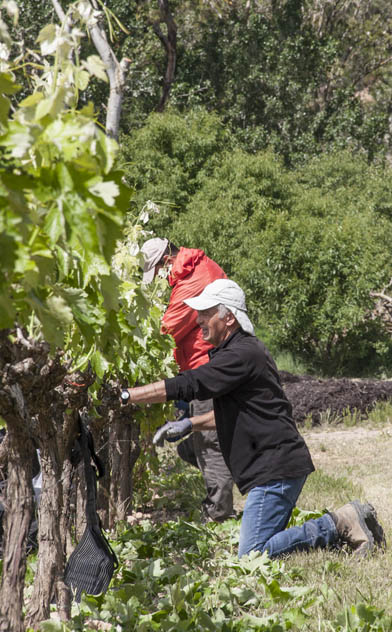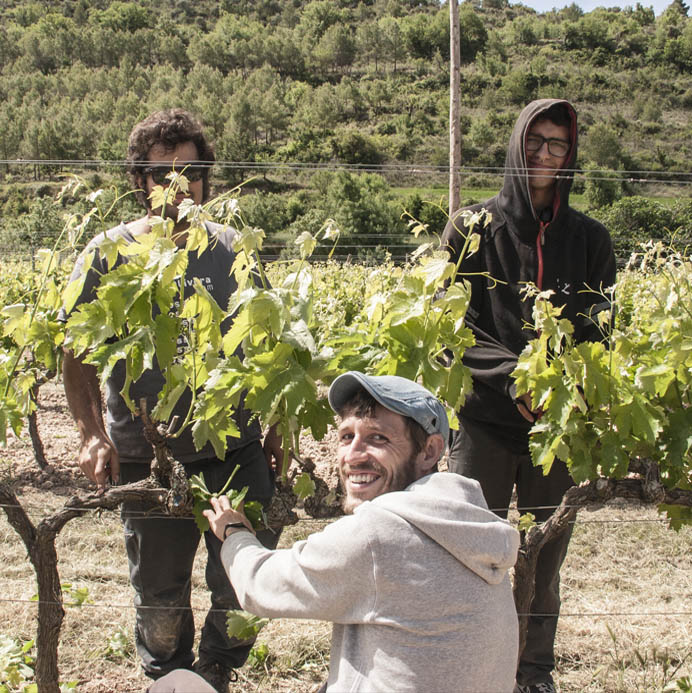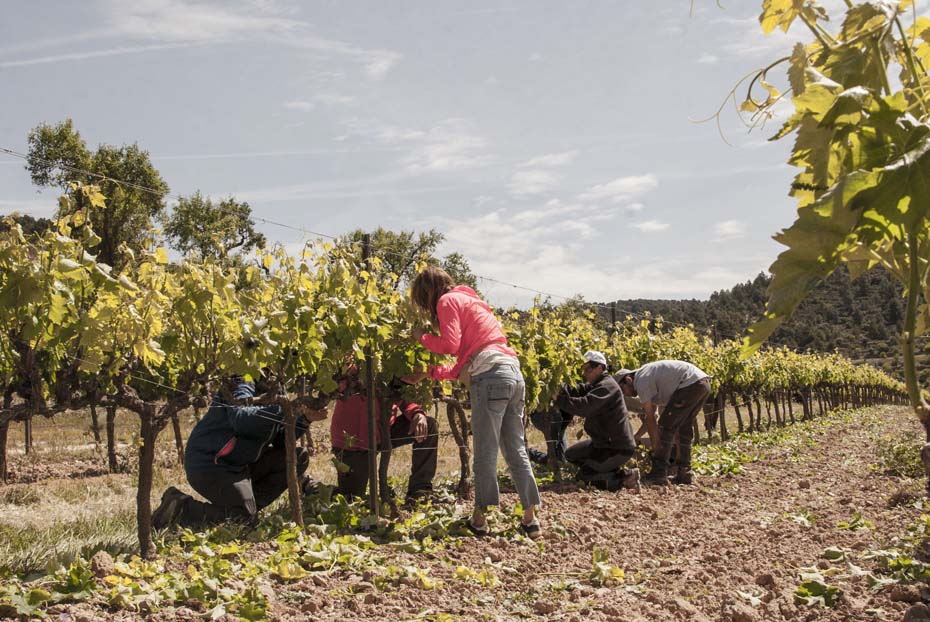Vitimob is the name of the Erasmus+ cooperation programme for innovation sponsored by seven social organisations from five EU countries (France, Germany, Italy, Spain and Slovenia) aimed at designing and implementing a regulated training programme in the winegrowing sector for people with poor qualifications and a disability and/or at risk of social exclusion.
The Catalan project partner is L’Olivera, which is spearheading the programme together with the French initiatives AGAPEI Tricat Production (Gaillac), AVIZE Viti Campus (Avize) and Relais Stierkopf Environnement (Molsheim), Germany’s ASW+W GmbH (Offenburg), CUDV Draga (Ljubljana) from Slovenia and Italy’s ELPENDU (Mola di Bari).
Vitimob was established after more than 15 years of reflections and exchanges by different associations related to social inclusion in the wine industry around the need to provide people with special needs with a career in the winegrowing sector. A qualified and recognised career that would give them geographic and field mobility and lead the winegrowing sector towards a better quality work.
The project began a few years back and has been developed in different phases that since 2017 included several meetings by the relevant partners to define the programme methodology and teaching model, and pilots with users from the associated entities that travelled to Germany and Catalonia for onsite work experience. Work also begun on writing and designing the training plan, teaching tools and skills sheets.


These tools will be designed considering the skills established by the European Qualifications Framework and in accordance with the ECVET principle of recognition around learning outcomes and vocational skills. Methods and teaching and learning tools will be created for the technical supervisors, who will also be trained in this position. These educational, learning and IT tools will be made available in different languages for all the partners. The main aim is for the training programme to earn Europe-wide recognition within the educational framework of reference.
L’Olivera also started to work on formalising regulated training for a vocational qualification in the Catalan sphere, as part of this project and in line with its objectives.
